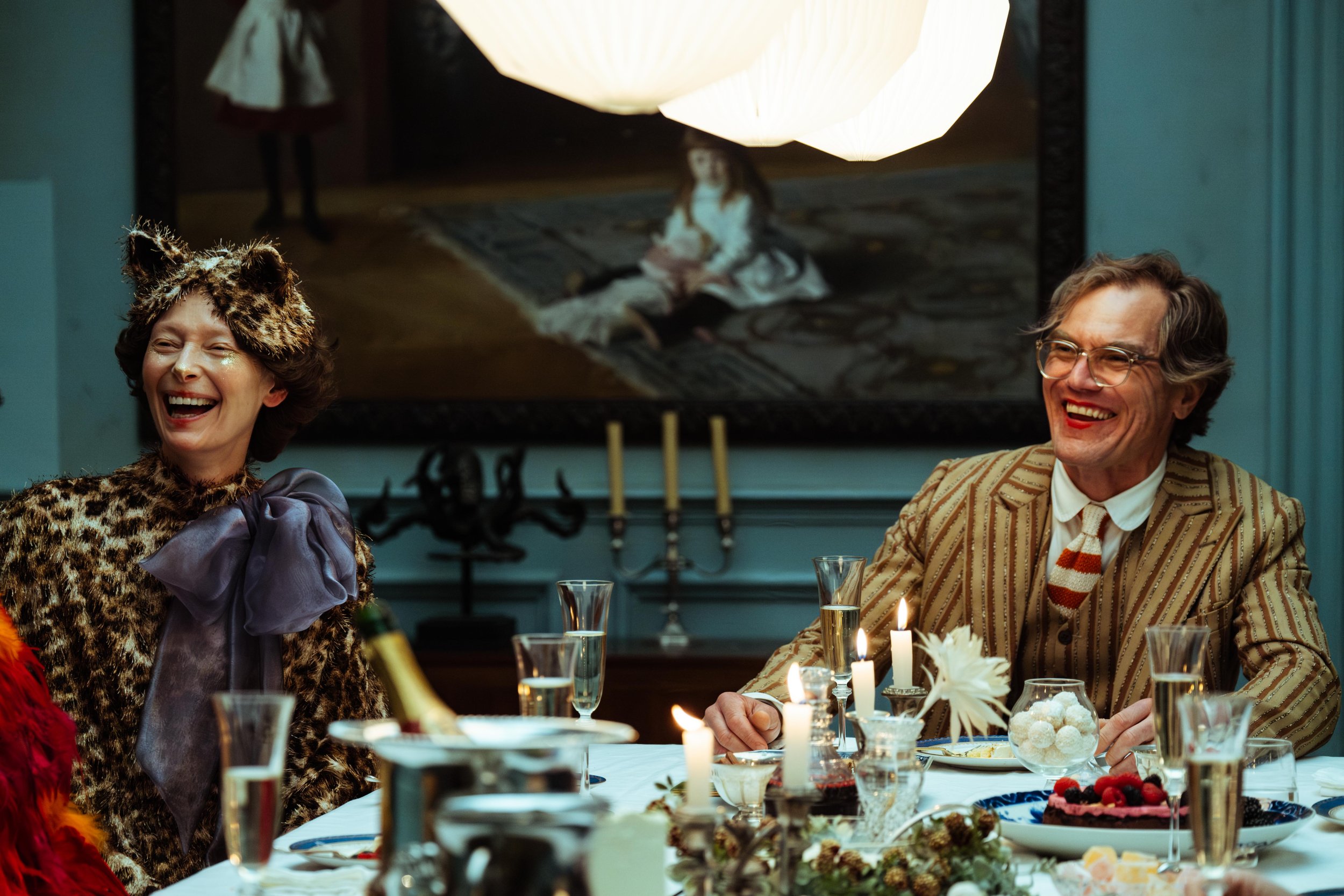The End: A Post-Apocalyptic Drama Wrapped in A Musical
By Chris Knight
Rating: B+
There’s an old joke about Noel Coward buying the rights to My Fair Lady and stripping out the musical numbers to turn it back into Pygmalion. I thought about that while watching The End, a two-and-a-half-hour, post-apocalyptic musical that is really more of a 100-minute post-apocalyptic drama with songs.
The numbers aren’t terrible. They’re just not good enough to be worth your while. They don’t add much to the plot or the characters or their motivations. They mostly just stop the action while people sing about things you already saw in their faces or heard in their dialogue, and when they’re finished they pick up the action again. I’d be very intrigued to see an atonal edit.
But the overall story, if you’ve got the time, is still a good one. Tilda Swinton and Michael Shannon play Mother and Father — those are the only names we ever hear — to their son, Son. He’s played by George MacKay, and he is just young enough to not remember whatever global cataclysm drove them into the salt mine where they now live, comfortably but without a view of the sky.
The family is rounded out by Doctor (Lennie James), Butler (Tim McInnerny) and Friend (Bronagh Gallagher). Father explains that in the early days of their seclusion, other people would arrive from time to time, “but it always ended up the same way; they’d try to kill us.”
And so, this tight-knit group carries on, surrounded by lovely furnishings and some stellar art that must have been looted. I mean, they’re clearly well off, what with a butler, a doctor and a live-in friend, but they’re not original-Degas-on-the-wall wealthy.
Things change with the arrival of Girl (Moses Ingram), an outsider whom they first awkwardly try to kill and then, when that fails, awkwardly befriend. She and the son soon start to develop feelings for one another, or at least as much as they can in the circumstances. Put yourself in his loafers and imagine going from nothing to young-adult romance without all those messy kindergarten crushes and grade-school puppy love and sloppy high school dates in between.
Along the way, but early enough that this doesn’t feel like a spoiler, we learn that Shannon’s character was some kind of energy mogul, and not the clean kind.
Now in a state of extreme denial, he has enlisted the help of his son to pen a revisionist, flattering biography. And the son, without any access to information not provided by his parents, is thoroughly indoctrinated in their views. (History isn’t always written by the victors. Sometimes it’s written by the survivors. Sometimes they even sing about it.)
Of course, director Joshua Oppenheimer has explored such dynamics before. His 2012 feature debut, The Act of Killing, features former Indonesian death-squad leaders re-enacting their crimes in a variety of cinematic styles including, yes, musical numbers. But the documentary nature of that film makes it a more powerful statement that any fiction could be.
Mind you, when the end of the world comes around, there likely won’t be the time or energy to document it. And it’s a good bet that no one will be singing, unless it’s Monty Python’s song about always looking on the bright side.
Meanwhile, The End provides much food for thought about what those times may look like. The film opens with a quotation from T.S. Eliot’s poem “East Coker,” a dark but ultimately hopeful work, written on the eve of the Second World War. The End may literally be a little tone deaf, but it is not morally senseless.
The End. Directed by Joshua Oppenheimer. Starring Michael Shannon, Tilda Swinton, and George MacKay. In theatres December 13.



